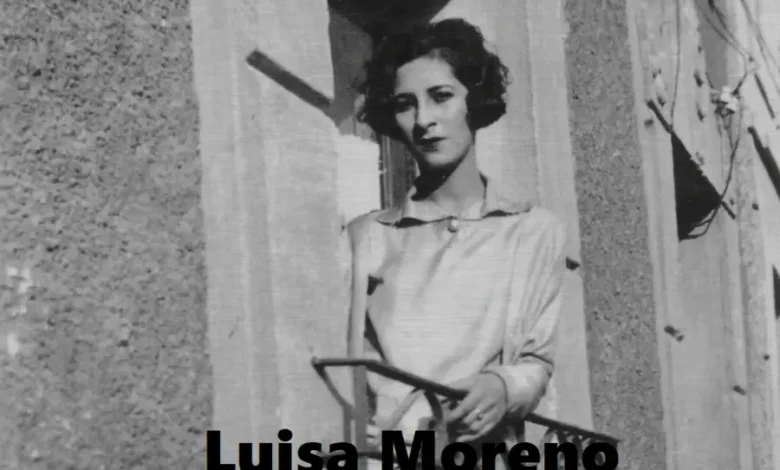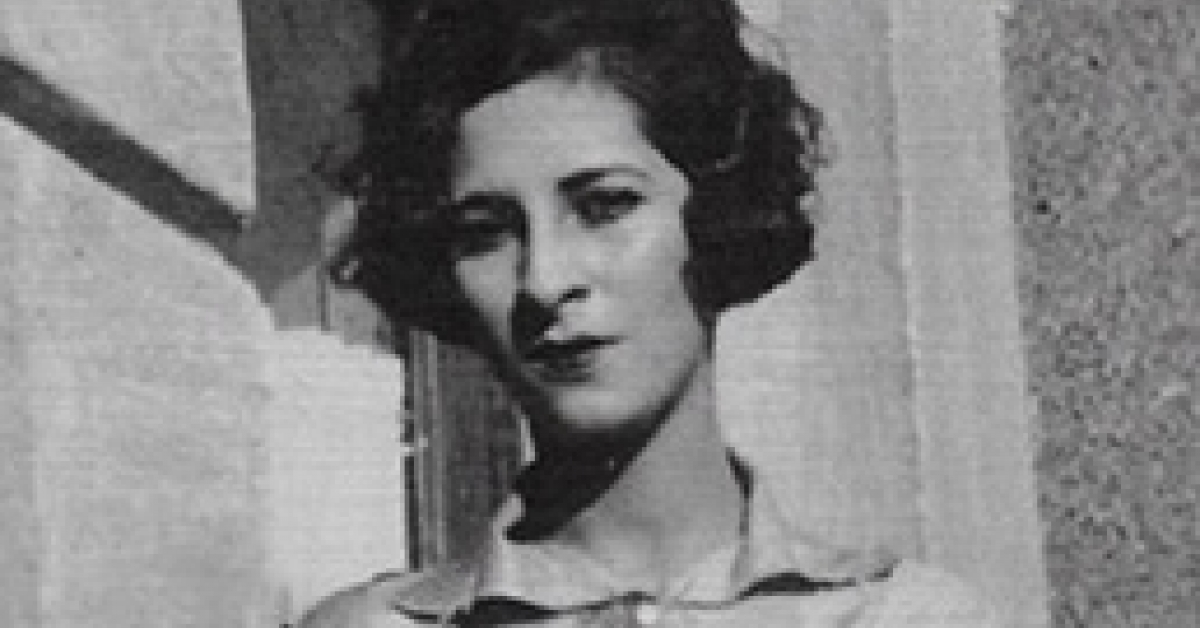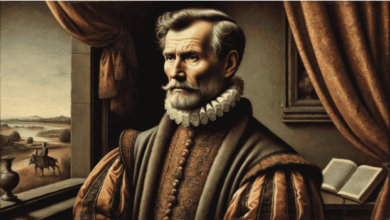Luisa Moreno: America’s Unknown Pioneer of Labour and Civil Rights

Luisa Moreno’s social impacts on the labor rights and civil rights movements in the United States, in the early twentieth century. Her accomplishments in the social movements, including the rights of workers, the immigrant’s protection, and social justice, remain unacknowledged in comparison with other historical leaders. Luisa Moreno, originally from Guatemala, soon rose to prominence and prominence within the American labor movement, particularly Women/of color and immigrant laborers. Her work led to the future of labor rights in the United States which makes her an important part of the history.
In this article, the reader has an opportunity to learn about a woman, who awakened millions of men and women in America and became an outstanding activist for gender equality; Luisa Moreno and her life experiences along with her contributions to the fight for women’s rights shall be entered into the history of American state as an epoch making creation by a heroine, who showed courage, intellect and organizational ability in the fight for the rights of woman.
Early Life: Finally, The Mayan Community from Guatemala to the United States

Luisa Moreno was born as Blanca Rosa López Rodríguez in Guatemala City on the 30th of August, 1907, was raised in a privileged background. Amid all the luxury and other opportunities, she grew up sensitive to different forms of discrimination and unfairness at quite a tender age. Luisa Moreno left Guatemala in 1925, with the intention of attending school, in Mexico she was introduce to revolutionary and political activity. A notion which would shape her life long dedication to the fight against oppression from these early experiences.
She married a Spaniard artist Angel De León in late 1920s and moved to New York where she turned into Luisa Moreno. The hardships in the Great Depression in regards to the economy spurred her to be more active socially in issues to do with immigration and workers especially the immigrant workers since they were some of the most affected by the depression.
The Rise of a Labor Leader
It is at New York that Luisa Moreno began her political activism, during which she engaged in workers’ struggle, staying with Eugenio during the period that workers including women, were being exploited in factories and sweatshops. Moreno personally was an immigrant from Spain and she could easily relate with fellow Latina workers, many of whom who, like her, were ill-treated and lowly paid in the workplace. She was soon promoted to be an organizer of many attached unions, on behalf of the American Federation of Labor (AFL).
One of her first victories was the organization of Spanish-speaking cigar rollers in Florida. This made Luisa Moreno a very effective and a trusted leader because she could hold direct conversations with workers from other countries in their own language and she knew some of the culture barriers that the workers encountered. By 1930, she has played the role of helping to organize the garment employees in New York City and a notable icon to the burgeoning labor force.
Coordinating Latina Women and Immigrant Workers
Besides factories, Luisa Moreno was interested in the plight of Latina women and immigrant workers in different sectors. In the 1930s numerous women from Latin America especially Mexico engaged in unskilled occupations in employment sectors for example canning, garment and agricultural. The experiences of these women include extra-long working hours, low wages, working under dangerous conditions and discrimination on both ethnic and Sexual Statistics.
Instead, Moreno concentrated her efforts on uniting women from these industries because while their work contributed a lot to the American economy, they were exploited, paid little and their contributions were ignored. She also observed that most immigrant women could not afford to stand up for their rights as women and called for formation of unions that represented the ladies.
They reveal, for example, that during this period, Moreno obtained one of his major victories as a labor organizer in Southern California, among cannery workers. She organized employees in the fruit and vegetable canning sector, most of the employees where Mexican and Central American immigrants. In 1935, the company’s president successfully led a movement to merge with the United Cannery and Packing Workers of the Pacific Coast to establish the United Cannery, Agricultural, Packing and Allied Workers of America (UCAPAWA) in 1937, which was one of only several unions during the time that addressed Latina and migrants workers.
The Sleepy Lagoon Case and the Struggle for a Race War
Apart from labor union activism, Luisa Moreno actively participated in the fight for equality of other races and citizens’ rights. Early 1940s were marked with rising racial bigotry in California most evident in Los Angeles Hispanics there were highly discriminated and Mexican Americans were usually blamed for societal ills.
Housed in the adult facility, twenty-two Mexican American youth were arrested in 1942 in the shooting death of a young man, or as it would be famously referred to as the Sleepy Lagoon case. The trial was seen as injustice ,the defendants were fined mainly on their race as opposed to present evidence. The incident mad the Mexican American people furious and Moreno and other activists formed Sleepy Lagoon Defence Committee to ensure that the young men who were framed were set free.
The Sleepy Lagoon case marked Moreno as a labor unionist and also as a civil rights activist since her main focus was welfare of people /Mexico’s citizens. She found link between race and economic oppression, and understood that Mexican Americans and other people of the color were discriminated both in civil and economical terms. Her actions against such injustices were some of the key initial steps in the preparation of Chicano civil rights movement in the 1960s.
The Founding of El Congreso
Luisa Moreno’s activism grew in 1939 when she was a founder of El Congreso de Pueblos de Habla Española (The Congress of Spanish-Speaking Peoples), which was the first of the Latino civil rights organizations in the United States. El Congreso was very active organization in the United States and the political organization that embraced a lot of Latino groups for example the Mexican Americans, Puerto Ricans, Cubans and everyone who had Spanish origin.
El Congreso was to seek equal rights for Spanish speaking workers, to educate the Spanish speaking population on exercise of civil rights, and vote. Issues addressed by the organization during the election campaign were the fight for equal wages for women, racial integration, and anti-police brutality against Latinos. Moreno acting in this capacity for this organization also became one of the leading activists for Latino civil rights at the time.
Persecution and Deportation
However, Moreno’s feminism and activism rendered her vulnerable during the political climate of the Cold War when people of her political beliefs stood to be sacked. Despite her biggest contribution in labor and civil rights movements, Moreno’s work raised attention of the U.S government officials-feeling that she was a socialist and having links to those countries.
In 1950, integrity of Moreno was called into question in the light of increasing perceptions of communism threats, and thereby deportation proceedings were launched against her. She preferred to leave the United States voluntarily than being forced to go back to Guatemala. Due to her moving to Mexico she still contributed towards the formation of labor and civil rights movements.
Legacy of Luisa Moreno
The work that this Mexican woman did for the labor rights and civil rights in the United States is priceless, but the majority of people today do not know who he is, although we can say that this is not entirely fair. Before becoming a social worker, she drafted the foundations of the immigrant workers’ union especially the Latin women and she also champion civil rights that opened doors for the future generation of the Latino leaders and activists.
Thus, Moreno’s life as an organized leader and his desire to take collective action are proven strong. Her story also shows relationship between labor rights and civil rights hence proving that economic oppression, racial discrimination and gender oppression.
Currently, Moreno is distinguished by laborists and civil rights scholars and her efforts keep on influencing civil rights activists. Luisa Moreno led a life rooted in struggle and change, and as America continues struggling to rebuild an inclusive society in the 21st century leaning on unresolved debates on immigration, workers’ rights, and race equality, her story keeps being timely.
Conclusion
Luisa Moreno was an exceptional women who played a very unique role even across the color, class, and gender divides. Beginning from the Latina women in the labor force to the cause of racial justice, Moreno had dedicated her life to social causes. Despite her name not being as familiar as it should be her contributions cannot be ignored. This paper argues that a historian is justified in celebrating the political activist Luisa Moreno because of her genuine concern with the difficulties faced by the subordinate workers and her struggle for civil rights should not be forgotten.





